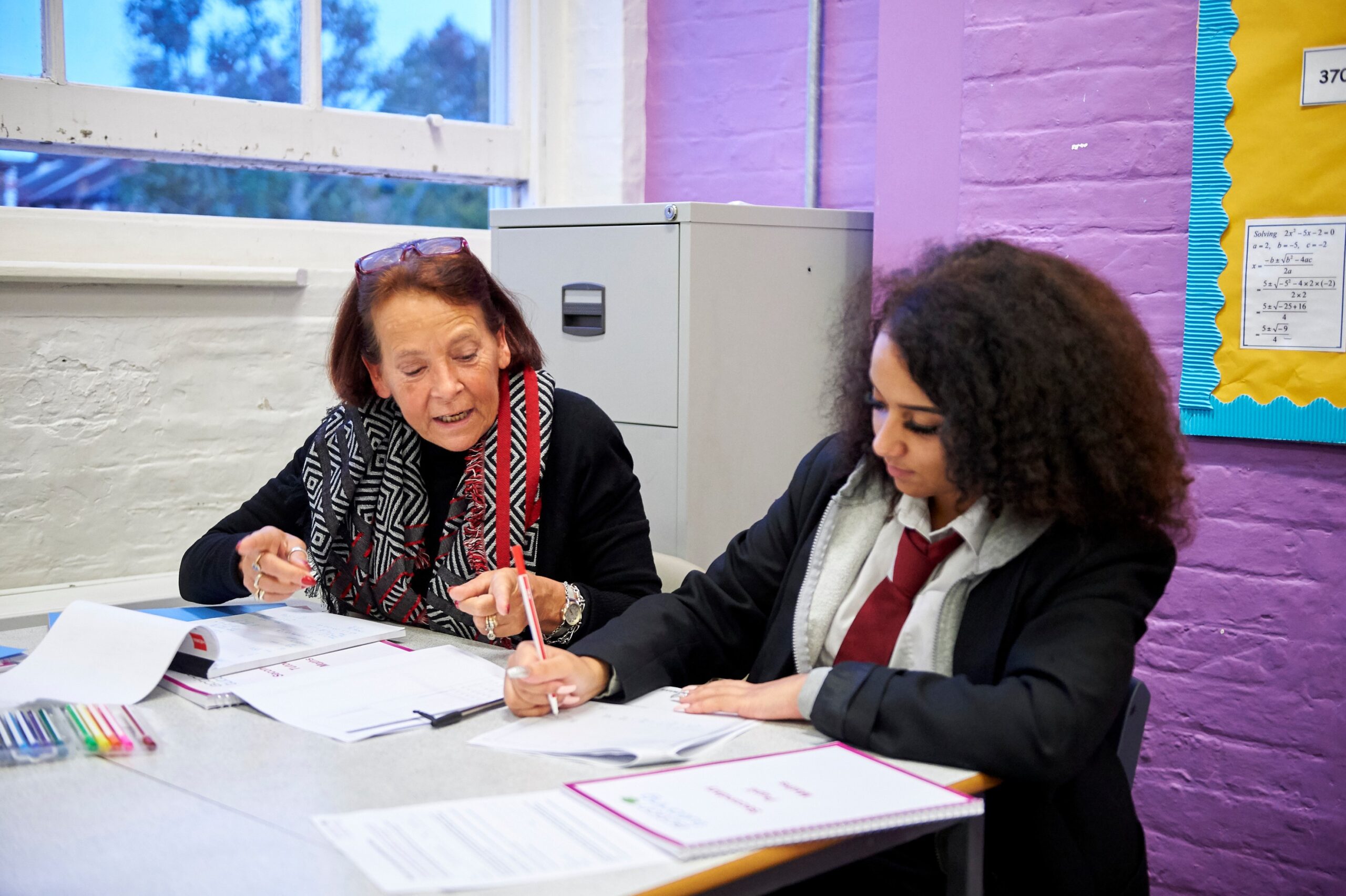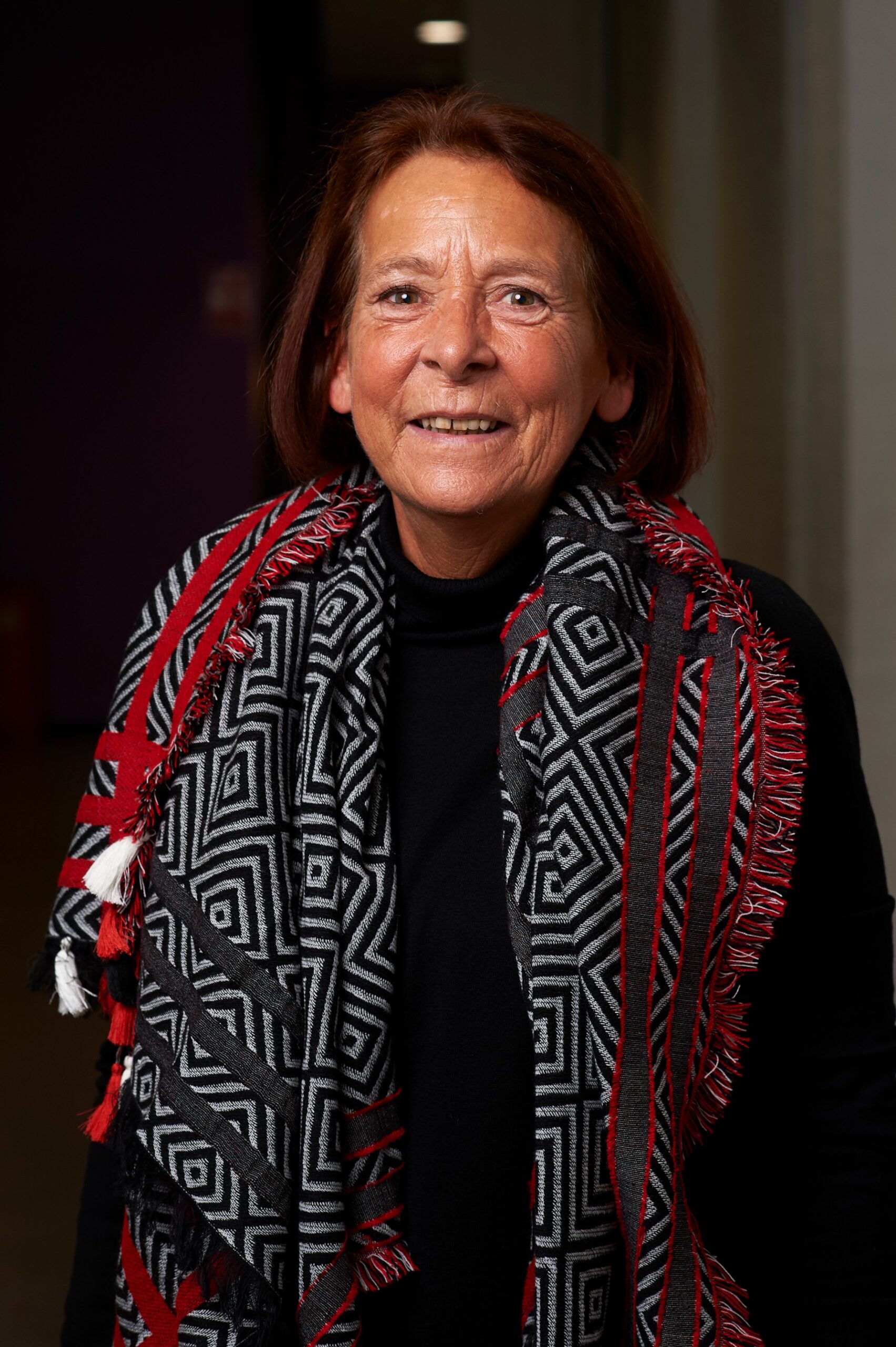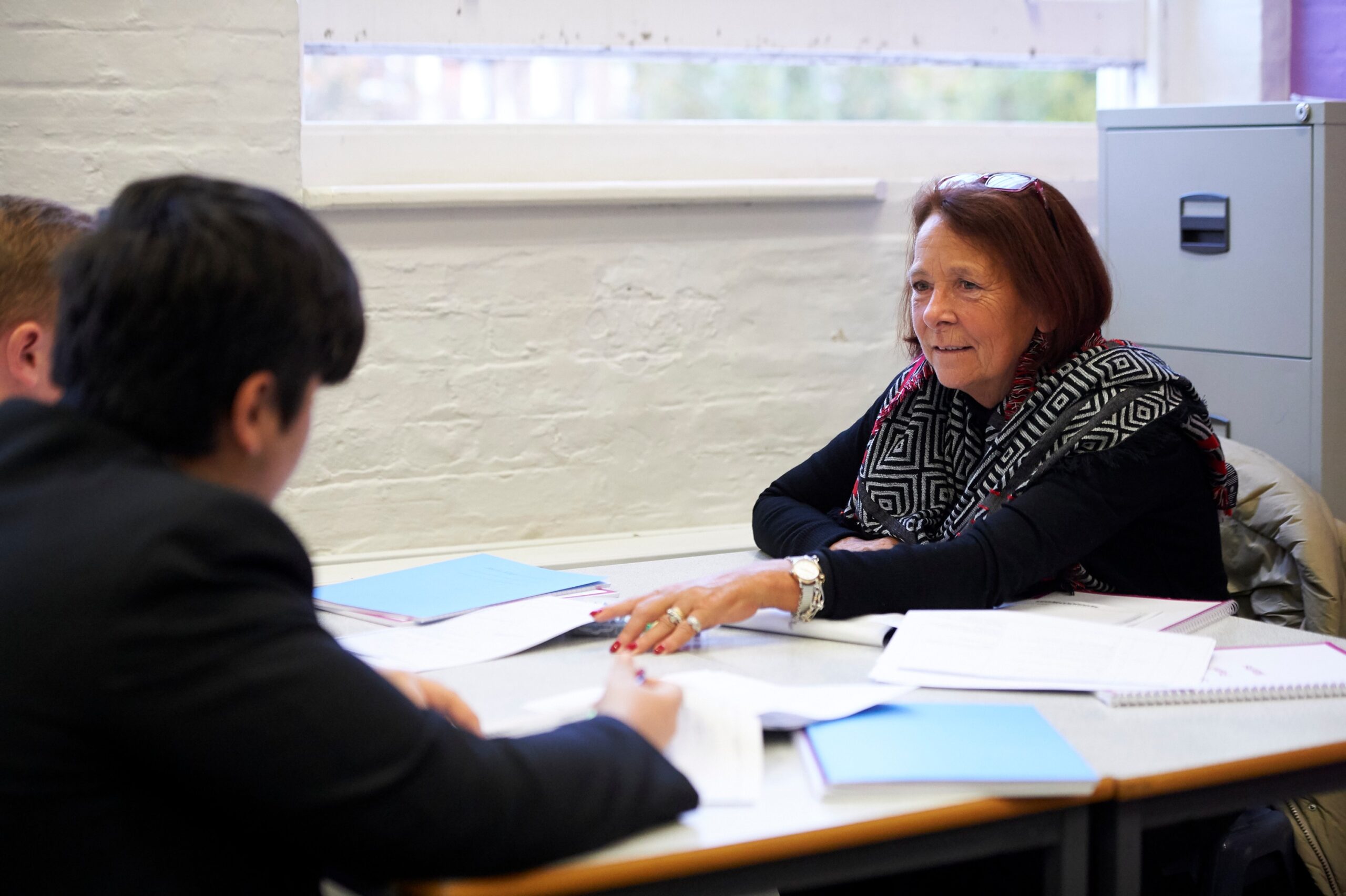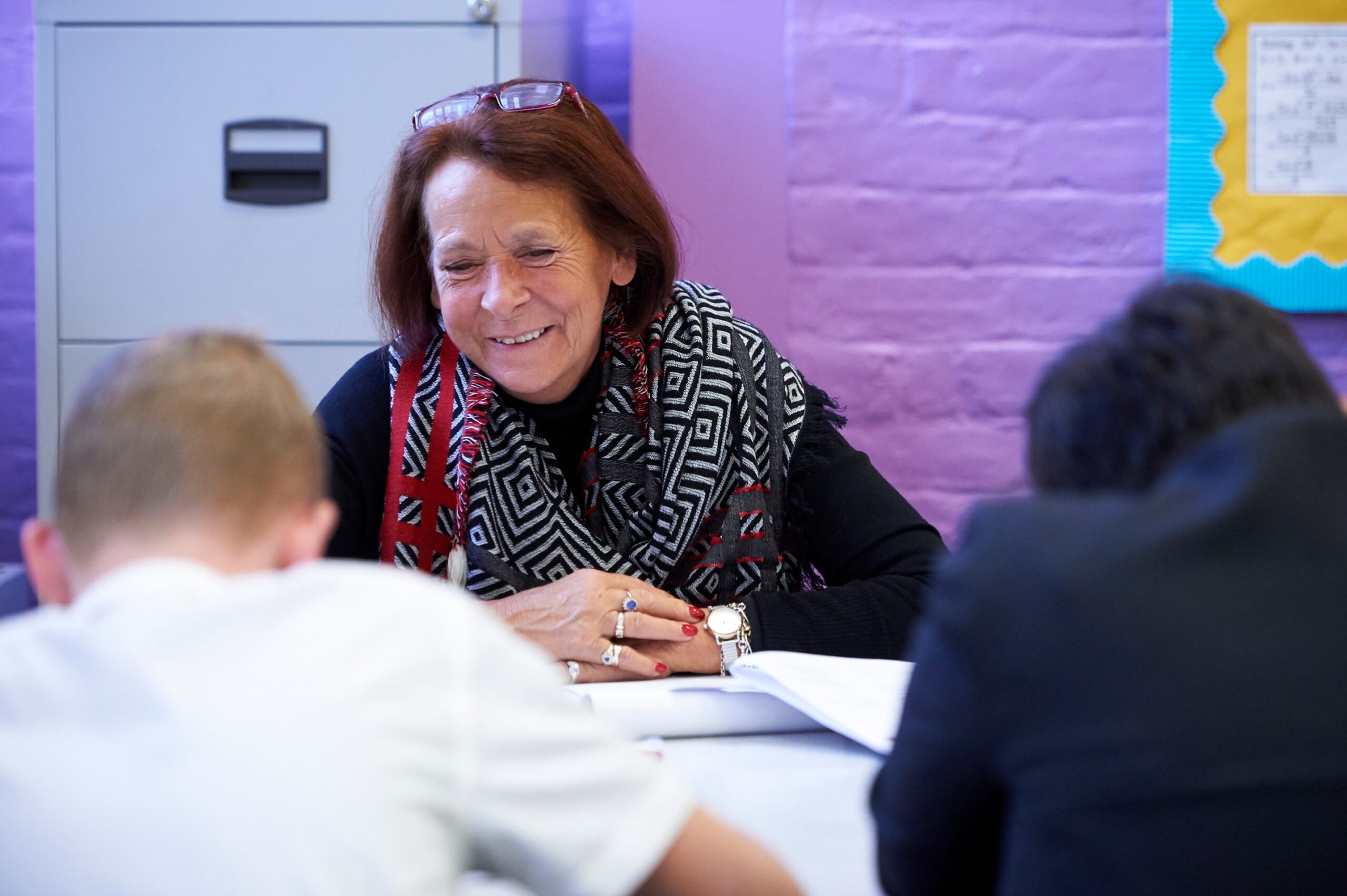

After Liz Hand retired as a banking executive in 2017, she made a pivotal decision that has impacted the education of many young people positively.
At the start of retirement, Liz missed the corporate life of having a busy diary. With a lot of time on her hands, she wanted to further her renewed purpose of “giving back and supporting young people” with her knowledge, skills and experience.
“My search for a volunteer opportunity to give back to young people landed me on Gransnet (social networking site for seniors), where I discovered that I could volunteer as a tutor for young children with Action Tutoring,” Liz recounted. “The minimum time requirement is only one hour a week, and I can choose which schools in my community I want to support.”
Since the autumn term of 2018, Liz has provided academic support in both maths and English to dozens of primary and secondary pupils in ten schools in her London community.
“My motivation for volunteering as a tutor is that, at the heart of everything I do, my desire is to develop people. Tutoring is more than just providing academic support to children, it’s also about building their confidence, encouraging positive attitudes, and breaking down the barriers they feel are in place to stop them from achieving,” she said.

Bridging intergenerational gap
Volunteering to support and mentor young people is a tangible way for retirees to pass on essential skills and life lessons. It serves an inter-generational benefit as many retired volunteers get to learn new perspectives on issues and pick up new skills as they build connections with a younger and diverse population.
“One of the best parts about volunteering is the lovely community of tutors and the great bonds that have been created. I’ve made friends with a diverse range of people from pupils to university students and retired tutors. This is heavily made possible by the Action Tutoring Programme Coordinators who oversee volunteering in schools.”
Exceeding national standards
For Liz, one of the things most fulfilling about working with pupils is watching them progress from strength to strength in their academic performance. Action Tutoring volunteers support pupils who are unlikely to meet expected standards in their maths or English final exams.
The charity works with schools where the percentage of pupils eligible for Pupil Premium (those registered for free school meals) funding is above the national average (22%) and strives to ensure over 65% of pupils they support are from low-income backgrounds.
“Both primary pupils I tutored exceeded the national standard in their SATs (Standard Assessment Tests). Furthermore, seeing their levels of confidence increase was very rewarding. When you develop a relationship with the pupils, they become more motivated to learn and look forward to coming to the sessions,” Liz said.

Dispelling fears
Just like many volunteers, Liz was anxious about being back in the classroom. But those fears were assuaged after her first session with pupils, many of whom have described her as a wonderful, experienced, and reliable tutor.
“Initially, I was apprehensive about tutoring because it had been a while since I was in school, however, the standard of material and training provided by Action Tutoring is absolutely amazing and dispelled all the fears I had about tutoring,” she said.
Previous teaching experience, or experience in the education sector, is not required to volunteer with Action Tutoring. They provide all resources and tutoring session plans, including brainteasers and ice breakers, for volunteers who can spare an hour a week to support children in a local school or online.
Bolstering labour market
The academic attainment gap between disadvantaged pupils and their better-off peers is at its widest in ten years at both primary and secondary levels, according to the Department for Education. The Covid-19 pandemic disrupted education and some of its effects including loss of learning and pupil absence still remain.
Without tutoring support, many young people are not likely to pass their SATs or GCSEs and may end up not in education, employment, or training (NEET). Currently, there are 788,000 young people who are NEET and each is estimated to cost the economy £120,000 plus over the course of their lifetime.
With the UK facing a skilled worker shortage, a collective effort to stop more young people from slipping through the net of leaving school without a pass mark in maths and English is needed.

Beyond volunteering
Aside from volunteer tutoring, Liz enjoys travelling and learning new languages.
For 30 years, Liz worked as a career banker in financial services, serving as a director of large investment change programmes, with additional experience in recruitment and training.
She has also mentored young people aspiring to start their own businesses and is always keen to learn more about the current education system.
“To anyone considering tutoring, I’d say it is not a lot of work or commitment – everything is broken down and it’s a great way to give back to young people that truly need the support and encouragement to succeed,” Liz said.
“You can tutor face to face or choose the online delivery option for convenience. It’s very rewarding, especially when pupils turn around and say thank you!”








